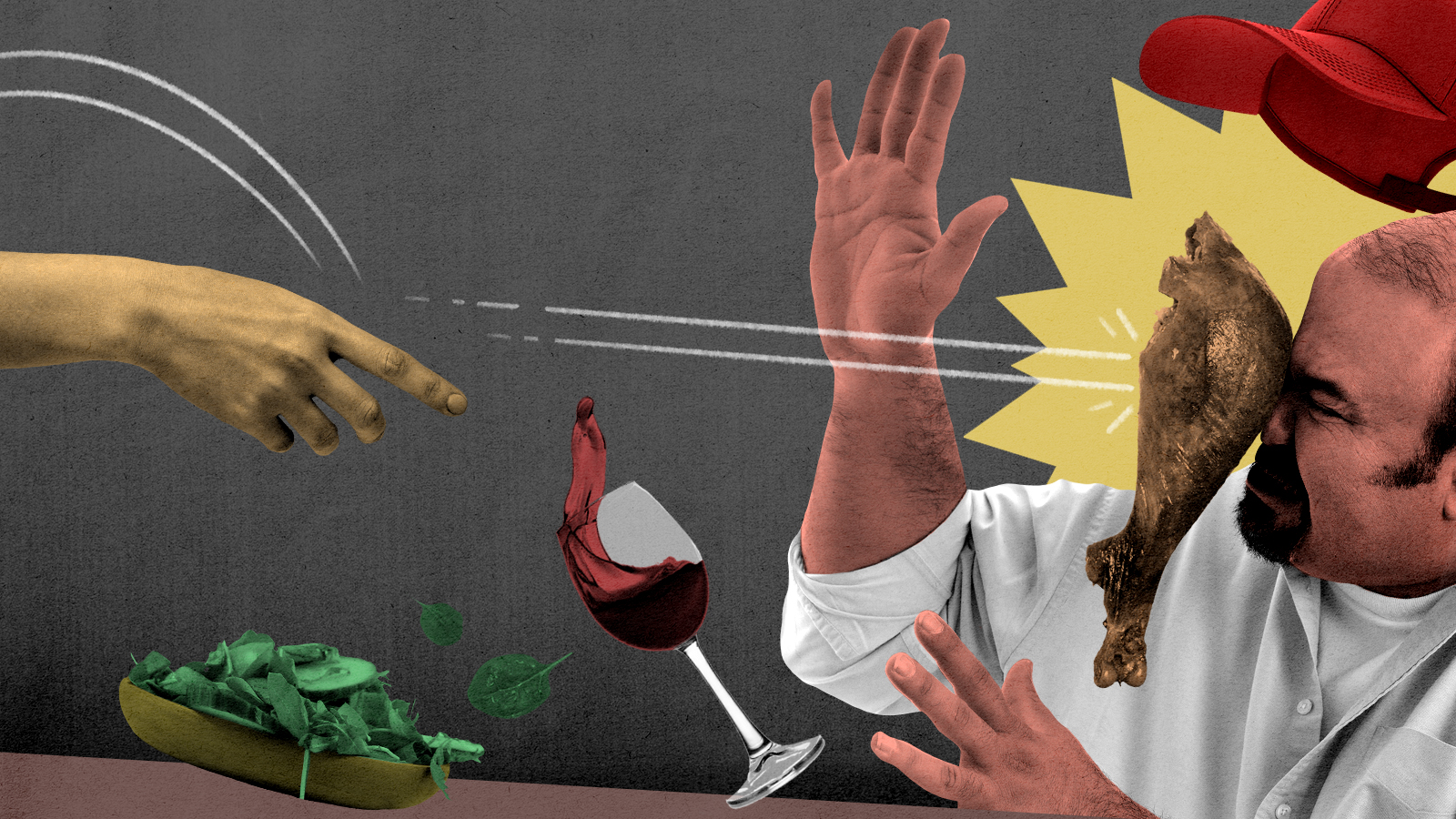Family, politics, and the spirit of classical liberalism


A free daily email with the biggest news stories of the day – and the best features from TheWeek.com
You are now subscribed
Your newsletter sign-up was successful
During the Trump administration, it seemed every Thanksgiving was an occasion for media outlets to run fretful stories by progressives about what to do when a "racist uncle" at the holiday dinner table vocally supported the 45th president. When those essays ended on a militant note, either advocating refusal to attend or pronouncing an imperative to confront and denounce the offending relative, many of us recoiled.
We did so not because we were cowards or closet Trump supporters. We did so in the spirit of classical liberalism.
Right-wing critics of liberalism like to mock it for aspiring to political neutrality. Such neutrality is impossible, these critics claim, because as a political philosophy, classical liberalism invariably stakes out substantive moral positions and therefore can't stand above the fray. But liberalism, rightly understood, doesn't aspire to — let alone claim to have achieved — neutrality. It only aims to check and restrain politics to leave room for other, nonpolitical goods and pursuits.
The Week
Escape your echo chamber. Get the facts behind the news, plus analysis from multiple perspectives.

Sign up for The Week's Free Newsletters
From our morning news briefing to a weekly Good News Newsletter, get the best of The Week delivered directly to your inbox.
From our morning news briefing to a weekly Good News Newsletter, get the best of The Week delivered directly to your inbox.
That's a not a political philosophy of neutrality. It's a political philosophy of limits.
This is why classical liberalism is usually talked about in terms of freedom. But this isn't (or isn't simply) freedom understood as an absence of external constraint on individuals. It's also, and maybe more fundamentally, freedom understood as living one's life without political considerations impinging on all, or even most, of our choices. That means allowing people to worship or not worship God as they wish and read or not read what they choose, but also allowing them to decide for themselves how much politics should matter in their lives.
Back in 1982, when the Cold War had begun heating up again, Leon Wieseltier wrote a beautiful essay for The New Republic (not available online) in which he criticized conservatives for trying to politicize culture for the sake of advancing the West's position against the Soviet Union. One passage in particular captures perfectly the comprehensive humanistic outlook of liberalism: "The real triumph over tyranny is not a poem about freedom, but a poem about love — a poem that neither submits nor resists, because it takes freedom for granted. Not the right politics, but no politics."
If you encounter a Trump-supporting uncle at a family gathering this Thanksgiving and feel the urge to rise up in anger against him, consider responding as a classical liberal: Change the subject instead. Recognize that there's more to life than political disagreements and disputes.
A free daily email with the biggest news stories of the day – and the best features from TheWeek.com
That kind of freedom is something every American should be thankful for: Not the right politics, but no politics.
Damon Linker is a senior correspondent at TheWeek.com. He is also a former contributing editor at The New Republic and the author of The Theocons and The Religious Test.
-
 6 of the world’s most accessible destinations
6 of the world’s most accessible destinationsThe Week Recommends Experience all of Berlin, Singapore and Sydney
-
 How the FCC’s ‘equal time’ rule works
How the FCC’s ‘equal time’ rule worksIn the Spotlight The law is at the heart of the Colbert-CBS conflict
-
 What is the endgame in the DHS shutdown?
What is the endgame in the DHS shutdown?Today’s Big Question Democrats want to rein in ICE’s immigration crackdown
-
 Big-time money squabbles: the conflict over California’s proposed billionaire tax
Big-time money squabbles: the conflict over California’s proposed billionaire taxTalking Points Californians worth more than $1.1 billion would pay a one-time 5% tax
-
 Did Alex Pretti’s killing open a GOP rift on guns?
Did Alex Pretti’s killing open a GOP rift on guns?Talking Points Second Amendment groups push back on the White House narrative
-
 Washington grapples with ICE’s growing footprint — and future
Washington grapples with ICE’s growing footprint — and futureTALKING POINTS The deadly provocations of federal officers in Minnesota have put ICE back in the national spotlight
-
 Trump’s Greenland ambitions push NATO to the edge
Trump’s Greenland ambitions push NATO to the edgeTalking Points The military alliance is facing its worst-ever crisis
-
 Why is Trump threatening defense firms?
Why is Trump threatening defense firms?Talking Points CEO pay and stock buybacks will be restricted
-
 The billionaires’ wealth tax: a catastrophe for California?
The billionaires’ wealth tax: a catastrophe for California?Talking Point Peter Thiel and Larry Page preparing to change state residency
-
 Trump considers giving Ukraine a security guarantee
Trump considers giving Ukraine a security guaranteeTalking Points Zelenskyy says it is a requirement for peace. Will Putin go along?
-
 Bari Weiss’ ‘60 Minutes’ scandal is about more than one report
Bari Weiss’ ‘60 Minutes’ scandal is about more than one reportIN THE SPOTLIGHT By blocking an approved segment on a controversial prison holding US deportees in El Salvador, the editor-in-chief of CBS News has become the main story
